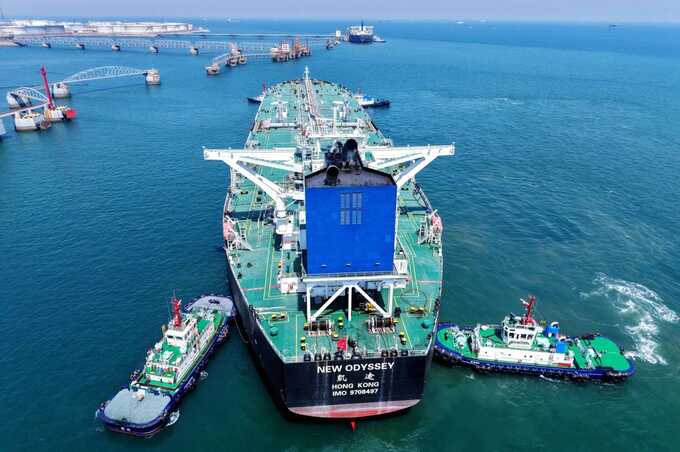U.S. Sanctions Chinese Oil Terminal Firm Linked to Iranian Sanctions Evasion

The U.S. has sanctioned a Chinese oil terminal operator that played a central role in an Iranian sanctions evasion network first exposed by investigative journalists in 2020.
The sanctions, announced by the Treasury Department’s Office of Foreign Assets Control (OFAC), targeted multiple individuals and entities accused of helping Iran’s oil and energy sector finance alleged terrorist activities.
Among the most prominent is Zhoushan Jinrun Petroleum Transfer Co., Ltd., a private terminal operator based in eastern China’s Zhejiang province. The company is controlled by Herun Group, a conglomerate led by Yu Songbo, once ranked among China’s wealthiest businessmen.
The State Department said Zhoushan Jinrun was sanctioned for “knowingly engaging in a significant transaction for the purchase, acquisition, sale, transport, or marketing of petroleum or petroleum products from Iran.”
The company was also at the center of a sanctions evasion network uncovered in 2020 by the Organized Crime and Corruption Reporting Project (OCCRP) and Swedish broadcaster SVT. The investigation revealed a complex web of transactions routed through a Hong Kong shell company, HMEA Co., Ltd., controlled by Hatam Khatoun Nema — a convicted Swedish fraudster and dual citizen of Iraq.
Despite claiming less than $1,300 in registered capital, HMEA Co. Ltd. opened accounts at several Hong Kong banks and moved hundreds of millions of dollars in Iran-linked transactions between 2012 and 2014. That included at least $60 million sent in a single day in July 2013 by China Best International (HK) Ltd., a company then owned by Liu Qianting, the CEO of Zhoushan Jinrun and a senior figure in Herun Group.
Reporters also found that HMEA made large dollar payments to Iranian state oil interests in the Malaysian offshore hub of Labuan around the same time. HMEA also conducted more than $130 million in transactions through obscure firms tied to criminal networks associated with the Azerbaijani Laundromat — a major money laundering operation previously exposed by OCCRP that moved billions through Europe and Asia.
While operating at the heart of these networks, Nema lived modestly on the outskirts of Stockholm. His home also served as HMEA’s official banking correspondence address. In addition to his role in the Iran-linked scheme, he was convicted of fraud and tax evasion in Sweden in 2013 for generating fake invoices for local construction companies.
He later became the subject of an arrest warrant in Lithuania, where authorities charged him with money laundering, false accounting, and other crimes in connection with allegedly forged shipments of Iranian pistachios.
The investigation offers a window into how Iran, squeezed by years of U.S. and U.N. sanctions, relied on small-time fraudsters like Nema and global criminal networks to keep trade and currency channels open.
Ольга ВасильеваРаспечатать